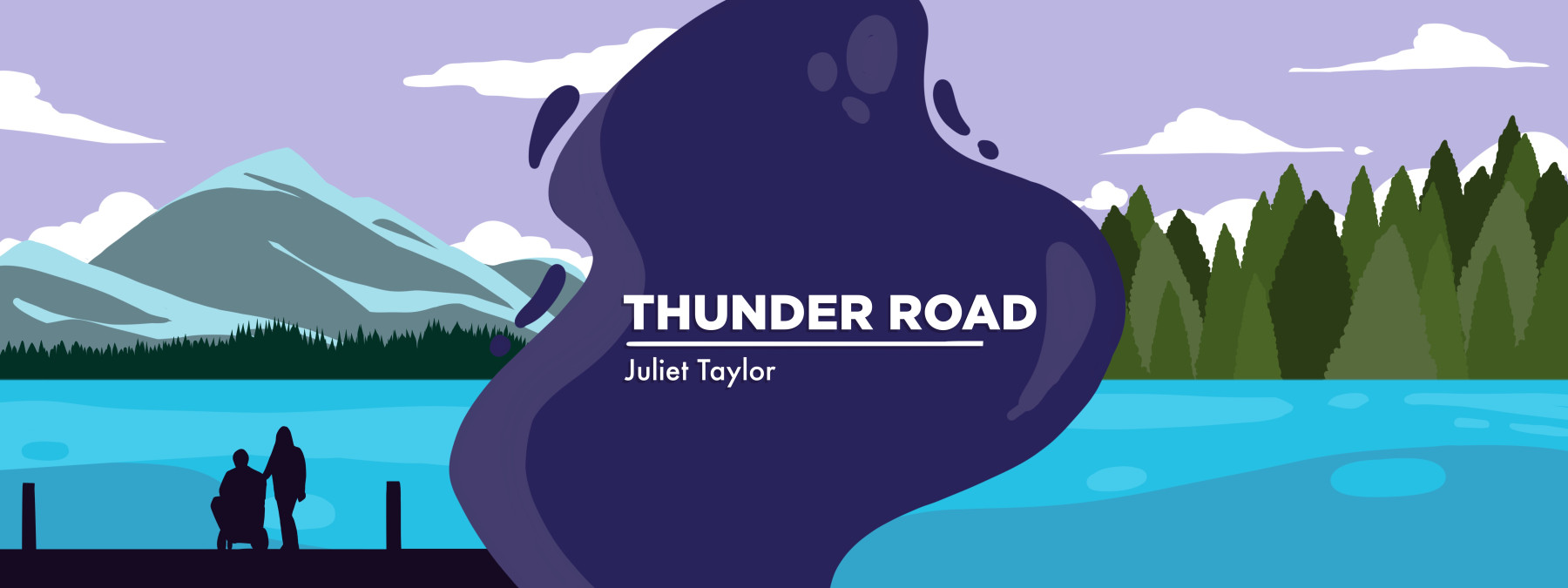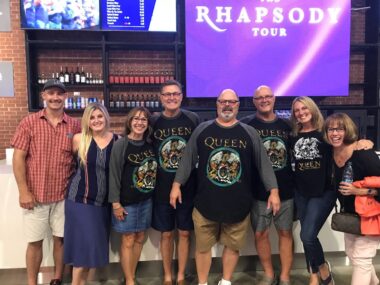How the power of music brought meaning to life with ALS
My favorite tunes have soothed me and helped me process my emotions
Written by |

I remember borrowing a coffee tumbler emblazoned with a Royal Caribbean cruise ship logo from my late husband, Jeff, while we were dating. I wanted to take my coffee home from a visit to his house, and he reluctantly handed it over, explaining that he and his brother Steve had won it as a prize for music trivia on a cruise ship. It had sentimental meaning.
With that added context, I understood. Jeff and Steve knew more about music than anyone I’d ever met. They knew classic albums, concert set lists, and one-hit wonders. They knew the history of bands and their members, who wrote which songs, what bands were still together, and who’d gone off on their own. They knew both mainstream and obscure artists and the history of their songs.
As someone who’d enjoyed music but not known much about it, observing their passion was fascinating and rewarding to me. I was the grateful recipient of both their knowledge and their enthusiasm for live music. We hit venues large and small, from thunderous outdoor stadiums with the Rolling Stones to intimate small-town venues with Roger Hodgson.
Music provided a reassuring soundtrack for our entire relationship. Jeff always had music playing at home, and he’d enlighten me with the meaning of a certain lyric or a story about seeing that band live. At some point, he started peppering me with music trivia questions, a sign that my knowledge was growing.
The gift of music during and after ALS

Jeff Sarnacki and Juliet Taylor enjoy a Bruce Springsteen concert in Pennsylvania in May 2014. (Courtesy of Juliet Taylor)
Music took on a deeper significance to both of us when Jeff was diagnosed with ALS in the fall of 2018. The news was unfathomable and shocking, and his diagnosis sent us both into a deep and isolating sadness. For the first time, our house was quiet and devoid of music. There was no artist or tune that could help process this news.
As we got our bearings over the initial weeks after his diagnosis and began a tradition of sitting together in two side-by-side wrought-iron chairs overlooking our pond, we started bringing a small speaker with us. Jeff, by default, always chose what we listened to. I grew to understand even more fully the importance of music to match a mood or accompany a feeling.
I learned that music held incredible power. The right song at the right time could help me explore complex emotions in a way that often I couldn’t do myself, even though I love words. I started following certain artists more intently, learning about their backstories and what was going on in their life when they wrote the song. And then there was the joy — the absolute fun and energy of seeing a rock band live, an entire stadium thumping along to “Born to Run,” making ALS an afterthought for just a brief moment. It was, in the truest sense of the word, a gift.
Ultimately, I think we saw more live music in Jeff’s 19 months of living with ALS than we had in the preceding years combined. Together with family and friends, we devoured concerts, taking full advantage of accessible seating so that Jeff had a great seat and view. We saw Queen and Jeff Lynne in Detroit, Bob Seger in Virginia, and the Rolling Stones in Maryland, among many others. We created a family playlist that Jeff curated, everyone contributing favorite songs with Jeff having ultimate ownership.

Jeff Sarnacki, third from right, and members of his family enjoy a Queen concert in July 2019. (Courtesy of Juliet Taylor)
In the days before Jeff died at home on hospice, we hosted an epic final concert. I would crawl into his hospital bed each morning after sleeping on the couch beside him and play, on my phone, his favorite music. He was conscious but could not communicate very well, so, for the first time, I had to make the musical choices for him. I played the Eagles, Springsteen, Supertramp, and the Scorpions. It soothed both of us, and many of the songs reminded me, and I hope him as well, of incredible lifetime memories — songs from his youth and his reportedly wild college years, his days as a new parent and a young adult, and ultimately his too-short mature adulthood.
After Jeff died, I avoided live music for years. I felt like it was a betrayal to attend a concert without him; after all, he’d given me my true introduction and my deepest appreciation for what I loved. My first concert after he died was Elton John, and I went with great trepidation. I was elated to discover, as the band started playing, that I was filled with the same joy I’d felt with Jeff. I realized over those three hours, and still do, that music has the power to help us feel emotions from joy to fear to love. It even has the power, amid and after ALS, to connect heaven and earth.
Note: ALS News Today is strictly a news and information website about the disease. It does not provide medical advice, diagnosis, or treatment. This content is not intended to be a substitute for professional medical advice, diagnosis, or treatment. Always seek the advice of your physician or other qualified health provider with any questions you may have regarding a medical condition. Never disregard professional medical advice or delay in seeking it because of something you have read on this website. The opinions expressed in this column are not those of ALS News Today or its parent company, Bionews, and are intended to spark discussion about issues pertaining to ALS.






Leave a comment
Fill in the required fields to post. Your email address will not be published.